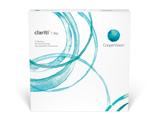
The school year is finally here! As kids prepare to work their brain, remember being a student also places great demand on their eyes. Read on to learn about the unique vision demands on students and some eye care tips to keep them seeing great all year long:
Time for an Eye Exam
If your child hasn’t gotten one already, it’s always a good idea to have his or her eyes checked at the start of a new school year. So much of learning is visually based, that students with undiagnosed vision problems often have issues with academic performance. Sight for Students, a Vision Service Plan (VSP) program, provides free eye exams to low-income, uninsured children. For more information about Sight for Students, call 1-888-290-4964 or visit the Sight for Students website.
Tips for Student Athletes
It seems apparent that most sports require good vision for peak performance. And with an estimated 42,000 sports-related eye injuries each year according to the The Vision Council, and almost half of those occurring in children younger than 15 years, it’s also important to protect those baby blues (and greens and browns) from harm. Proper eyewear protection is critical for many sporting activities, especially ball and contact sports.
Too Much Computer Time
Today’s students are staring at screens non-stop. In a 2012 survey of over 1400 students by the Pearson Foundation found that nearly six in ten students preferred a digital format when reading books for fun or textbooks while only a third preferred a print format. Viewing a computer screen places incredible demands on the visual system, much more so than a printed page, and can cause a variety of temporary symptoms including: headaches, eyestrain, blurry vision, neck and shoulder pain, and dry eyes. This is called Computer Vision Syndrome. To learn more about this condition, read our August 28 post, "All About Computer Vision."
Being a student is both a rewarding and challenging experience. Help your children succeed this year by helping them care of their vision. They may not think to thank you for it, but they will be grateful.





